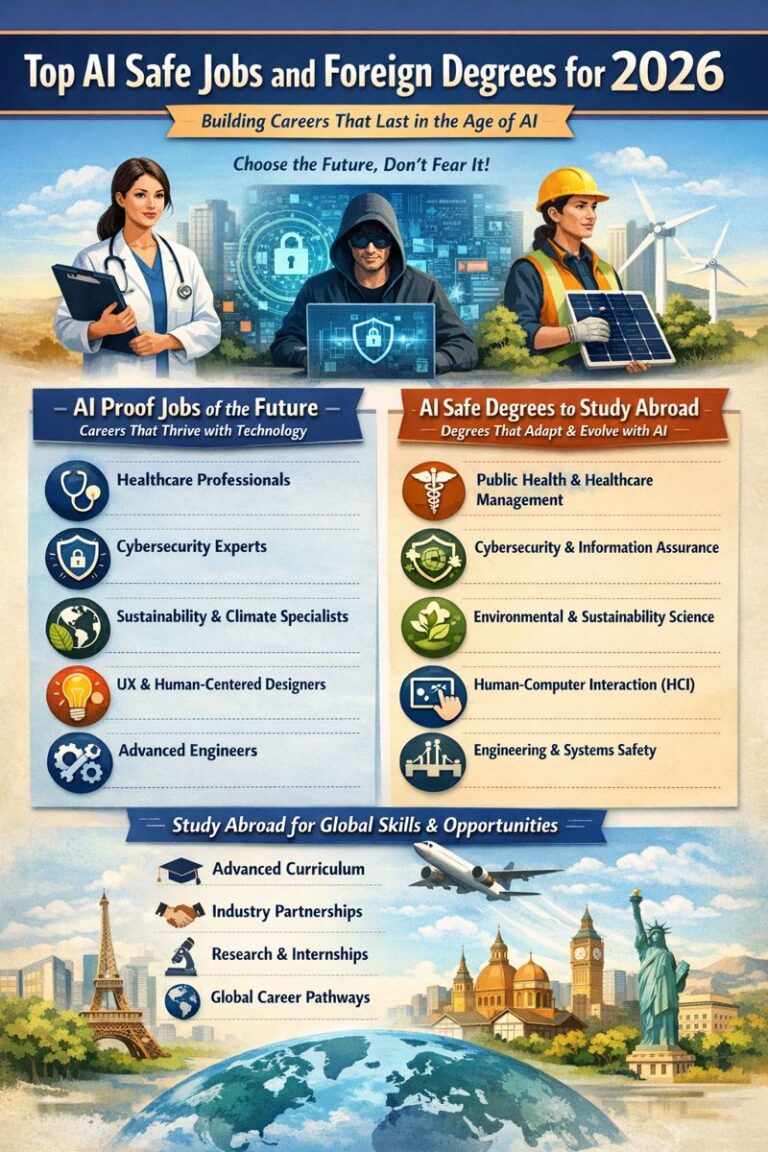Everything You Need To Know About Studying A Master’s In Human Resource Management
The human resource management discipline is all about managing an organization’s most vital resources: the people who work there. Naturally, students who pursue a Master’s in Human Resource Management learn a lot about human behaviour. More specifically, during your Master’s in HRM, you will learn how you can manage different types of humans and bring out the best in them.
The job of an HR professional involves talent acquisition, talent management, and promotion of job satisfaction, among a host of other things. Pursuing a master’s in this field will put you on the right track to land a role as an HR professional in a top company.
Keep reading to understand the value of pursuing a Human Resources Management course in the USA.
Let’s start by understanding what human resource management is all about.

What is human resource management?
Human Resource Management is all about managing a company’s people. The goal is to help employees do their best while ensuring their work aligns with the company’s goals.
A human resource professional handles a range of duties. The work of an HR professional spans the entire journey of an employee through the organization. The job entails hiring, training, and ensuring employee satisfaction. There is also often an overlap between the roles of a human resource professional and an office admin.
Human resource management, though not a new profession, is undergoing an evolutionary period. Today, more than ever before, we see new-age companies putting focused effort into improving employee well-being. This starts with the implementation of new human resource policies that align the organization’s goal with the overall welfare of its people in mind. As this evolution continues, the demand for skilled HR professionals will only grow. Because of this, getting a Master’s in HRM can boost your career prospects.
Let us discuss further the different roles a human resource professional plays in an organization.
Purpose of human resource management (HRM)
Here are three key areas that human resource professionals work in:
-
Talent Acquisition and Development
This is where human resource management truly starts—with acquiring talent for the organization. HR professionals design recruitment strategies – like campus hiring, conduct interviews, and implement onboarding processes. Once the talent has been acquired, the human resource professional sees to it that they are properly inducted into the organization.
-
Performance Management
Another responsibility of human resource professionals is to establish a framework for evaluating employee performance. This involves setting clear performance expectations at the start of the year. Human resource professionals are also responsible for conducting periodic evaluations of the employees. They facilitate discussions between managers and employees. This helps to analyze the employee’s performance and ensures they’re on the right grow
-
Employee Relations and Organizational Culture
For employee satisfaction, it is imperative that there is a positive work environment. The human resource professional is responsible for ensuring that there is a dynamic feedback mechanism in place. This will help eliminate the employee’s problems at the root. This also extends to conducting events and activities that help keep employees from getting stuck in a rut.
Activities like “Pizza Parties” or “Fun Fridays” may seem frivolous. But in the long run, these help employees feel like the organization does in fact care about them. And more than that, care about more than just getting work done.
Functions overseen by human resource managers
- Compensation and Benefits Management
One big reason for attrition is when the employee feels their compensation is not fair. A human resource manager is responsible for designing fair compensation structures and benefits packages for employees. So if you are responsible for this task, you would need to keep up with the industry norms.
- Recruitment and Selection
A human resource professional is responsible for ensuring there are adequate employees to keep the organization moving. You would be responsible for identifying job vacancies within the organization, attracting the right candidates to apply, and then selecting the best talent for the organization.
- Ensuring Workplace Satisfaction
An employee who is satisfied with their job is a much more productive one for the organization. They are also more likely to stay in the organization. Through various engagement activities, you, as a human resource professional will be responsible for ensuring your employees have job satisfaction.
- Organizing Training and Development Activities
Even a senior employee in the organization would need to undergo periodic retraining. This ensures that the employee’s awareness about the organization is current. You would be responsible for developing a training module as required by the employees and executing it.
- Succession planning
Succession planning ensures that there is continuity in the organization. You would have to identify and groom talent internally to step into key roles when needed. This helps the organization stay strong even during transitions.
Careers in human resource management (HRM)
HRM consists of various roles and career paths. Depending on the organization’s industry, the number of employees, or even the type of clientele, your career options may differ.
The field of HRM is expanding with a projected growth rate of 8% from 2023 to 2033 according to the U.S. Bureau of Labor Statistics. This increase reflects the importance of effective human capital management for those entering the field.
With a Master’s in Human Resource Management, even starting roles are likely to be more advanced and strategic. These include positions like HR Specialist, Talent Acquisition Manager, Training and Development Coordinator, Compensation and Benefits Manager, or even HR Business Partner.
Some career paths you can take include:
- Payroll Specialist
- Training Coordinator
- Benefits Administrator
- Industrial Relations Manager
Most organizations would also allow you to rotate between the various paths so you can explore your likes and dislikes.
Top universities for Master’s in Human Resource Management
Many universities in the USA provide a Master’s in HRM program. Here are some of the leading institutions:
- New York University (NYU)
New York University offers an MS in Human Resource Management through the School of Professional Studies. For full-time students, the course can be completed in 1 year. If you opt for part-time students, it will be a 2-year-long program.
For full-time students, the program fee is around $75,000. The fee would change based on the number of credits you opt for per semester.
- Purdue University
This university offers an MS in Human Resource Management through the Mitch Daniels School of Business. It is a full-time program that can be completed in 11 or 18 months based on your opted credits per semester.
The program fee is around $ 32,500
- Texas A&M University
The school provides an MS in Human Resource Management through Mays Business School. It is a 16-month in-person program giving you access to several on-campus benefits.
The program fee is roughly $33,600.
- Northeastern University
The university provides an MS in HRM. The program can be taken as a part-time or full-time program. Based on that, the program length is 12 – 18 months.
The program fee is approximately $40,000.
- Pace University
Pace University’s Lubin School of Business offers an MS in Human Resource Management. The program typically takes 1.5 – 2 years to complete when undertaken as a full-time program.
The average annual tuition is around $45,300.
These top universities get you access to the top employers where your average salary will be upward of $125,000.
New specializations within HRM
Here are some of the latest specializations in HRM:
- Employee Assistance Program (EAP) Manager
This role focuses on programs that support employee well-being, like counseling services, work-life balance initiatives, and health and wellness programs. EAP Managers are key to fostering a supportive workplace and addressing mental health concerns.
- Human Resources Information System (HRIS) Analyst
As more organizations rely on technology for HR tasks, HRIS Analysts help manage and improve HR information systems. They ensure that data for recruitment, payroll, and employee performance is accurate and used for strategic decision-making.
- Diversity and Inclusion Specialist
This role is all about creating equitable workplaces. These specialists develop and implement initiatives that promote diversity, equity, and inclusion. Their goal is to build a culture that values different perspectives and helps everyone feel like they belong.
- People Analytics Specialist
This newer role uses data analytics to guide HR strategies. People Analytics Specialists look at workforce data to find trends in engagement, performance, and turnover, helping companies make informed decisions about their talent.
- Remote Work Coordinator
With the rise of remote work, this role focuses on creating policies and practices that support remote employees. Remote Work Coordinators help manage challenges related to communication, collaboration, and performance in a virtual environment.
These new specializations reflect how HRM is changing, showing that there’s a growing need for professionals who can adapt to new workplace dynamics and help support both company goals and employee well-being.
These new specializations have come up with the evolutions in human resource management. If you have some questions about HRM, read our FAQ section.
FAQs
1. Is a master’s in Human Resource Management worth it?
A Master’s in Human Resource Management (HRM) can be a great investment for a lot of professionals, offering some big advantages that boost career prospects and earning potential.
One of the main benefits of getting a master’s degree in HRM is the increased earning potential. {According to the Bureau of Labor Statistics, the median salary for human resource managers is around $121,220, which is a lot higher compared to the $63,490 median for HR specialists}. This difference shows how an advanced degree can open doors to higher-level jobs with more responsibility and better pay.
2. Which is better, an MBA in HR or an MA in HR?
Choosing between an MBA in Human Resource Management and a Master’s in Human Resource Management (MHRM) really depends on your career goals. Both degrees have advantages and focus on different aspects of HR and business.
An MBA in HR gives you a broader view of business, along with specialized HR training. It’s great if you want to understand different parts of a business—like finance, marketing, and strategy—while also focusing on HR. This can open doors to a lot of management roles, not just in HR.
On the other hand, an MA or MHRM focuses specifically on HR topics, like recruitment, employee development, and labor relations. This is perfect if you’re committed to a deep dive into HR and want to become an expert in the field.
3. What is a Master of Human Resource Management?
A Master of Human Resource Management (MHRM) is a specialized degree that gives you the skills and knowledge to manage people effectively in any organization. It’s usually a two-year program that dives deep into all things HR—like recruiting, employee relations, training, compensation, and performance management.
The main goal of an MHRM is to get you ready to tackle the complexities of managing a company’s workforce. You’ll learn how to create strategies that align HR practices with business goals, which means boosting productivity and keeping employees happy. If you’re looking to become an HR expert and make a real difference in how companies work with their people, an MHRM is a solid choice.
4. What should be my undergraduate degree to pursue a Master’s in HRM?
If you’re thinking about doing a Master’s in Human Resource Management (HRM), your undergraduate degree can help set the stage—but there isn’t just one “right” major.
A degree in business administration is really common because it covers the basics of management and organizational behavior. If you already have a degree in human resource management, it is even better—it gives you a solid start.
Psychology is also great since understanding people is key to HR, and Sociology can help you get a grip on social dynamics and diversity. A communication degree works well since strong communication skills are a big part of being successful in HR.
If your degree helps you understand people, organizations, or businesses, you’re on the right track.
5. What is a typical salary for an HR master’s graduate?
A Master’s in Human Resource Management (HRM) can boost your earning potential. On average, HR professionals with a master’s degree make about $80,300 a year, compared to roughly $64,000 for those with just a bachelor’s. This difference shows how advanced skills from a master’s can pay off.
The salary also depends on the role. For example, HR Managers typically earn around $100,100 a year, while Compensation and Benefits Managers can make about $124,700. If you move up to executive positions like Chief Human Resource Officer (CHRO), you could be looking at a median salary of roughly $147,200. So, investing in a master’s degree can lead to higher earnings and more opportunities.
Getting a Master’s in HR is a worthwhile investment in your education as it is a field that will never become obsolete.


















